Great Design Plant: Mardi Gras Sneezeweed Throws a Color Party
http://decor-ideas.org 08/19/2013 17:45 Decor Ideas
Late summer to me is about kicking back and enjoying the garden with friends and family, so I rely on easy-care plants to be the mainstay of my designs.
Sneezeweed is often overlooked in favor of the better-known summer daisies coneflower (Echinacea spp) and black-eyed Susan (Rudbeckia), yet this equally tough and attractive summer bloomer has a unique, playful multicolored palette. Planted en masse to create a meadow effect or in smaller numbers as an accent to richly colored foliage, this perennial will quickly win you over and be a regular guest at your summer parties.
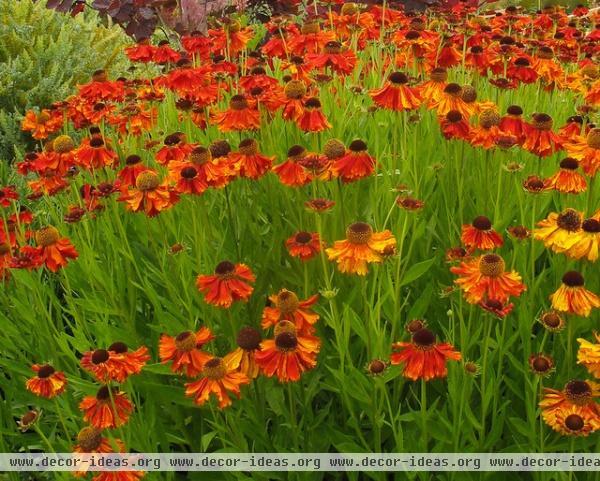
Botanical name: Helenium 'Mardi Gras'
Common names: Sneezeweed, Helen's flower
USDA zones: 3 to 9; hardy to -40 degrees Fahrenheit; find your zone
Water requirement: Low
Light requirement: Full sun or partial shade
Mature size: 3 feet tall and wide
Benefits and tolerances: Drought tolerant, deer resistant (in my garden at least), good cut flower, attracts butterflies and bees
Seasonal interest: Summer
When to plant: Spring or fall
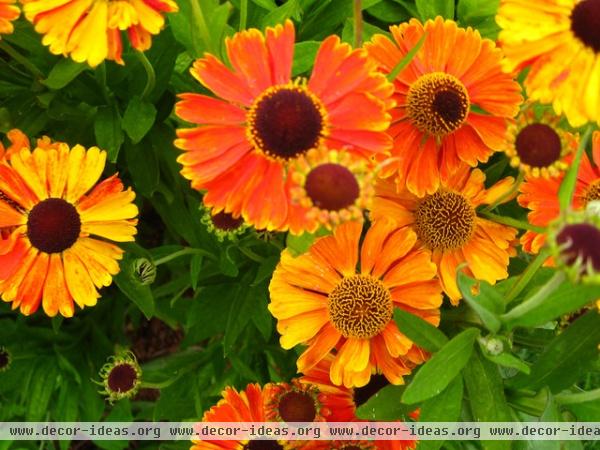
Distinguishing traits. This perennial is not for the faint of heart. A flouncing skirt of vivid orange splashed haphazardly with gold surrounds a prominent dark cone. Each flower is unique, giving the impression of a troupe of spinning dancers at a wild party.
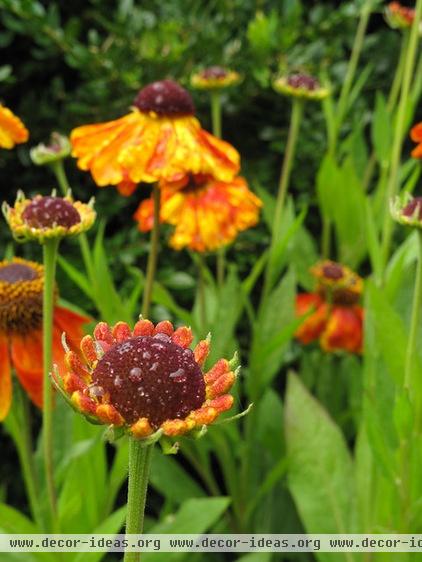
As the buds open, each chocolate "button" seems to be wearing a necklace of brightly colored beads.
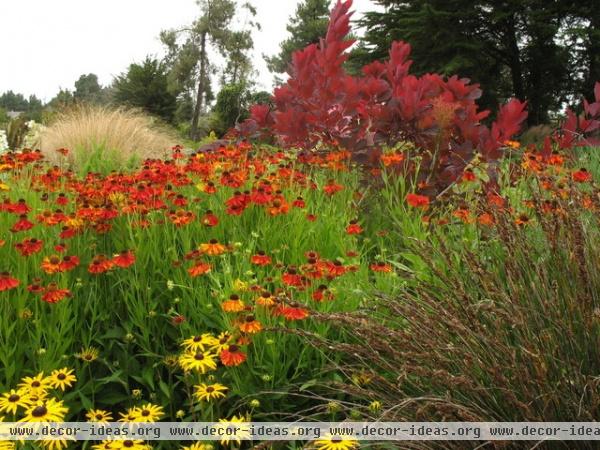
How to use it.
In large drifts: Planted en masse and combined with smoky grasses and other prairie-type flowers, sneezeweed will give you a colorful meadow effect in a late-season border. In smaller numbers: Highlight the dark central cone by combining Mardi Gras with deep brown, purple or burgundy foliage, such as that of Diablo ninebark (Physocarpus spp, shown).
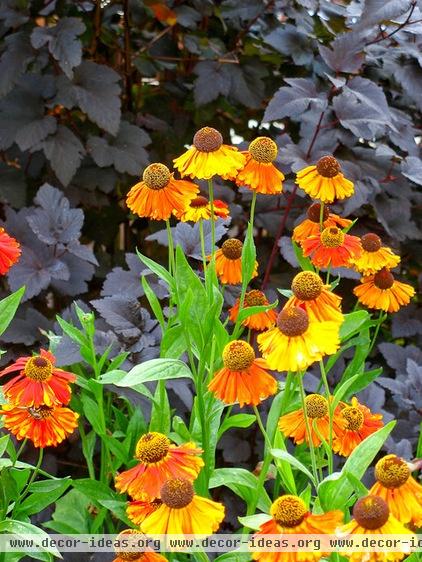
Planting notes. Plant in average, well-drained soil in spring or fall. You can divide mature clumps as necessary in spring by slicing through them with a sharp spade and replanting each section. When grown in full sun, sneezeweed does not need staking. In partial shade it may be necessary to support the long stems with a simple network of sticks.
Related Articles Recommended












